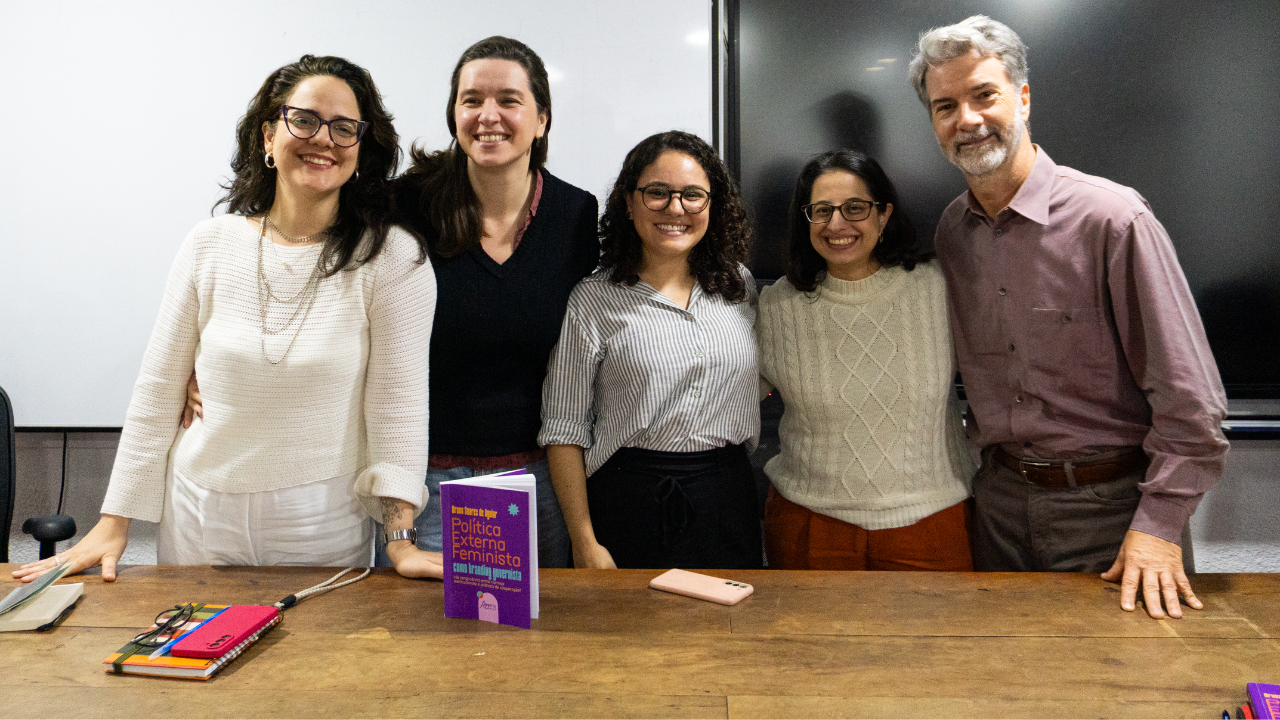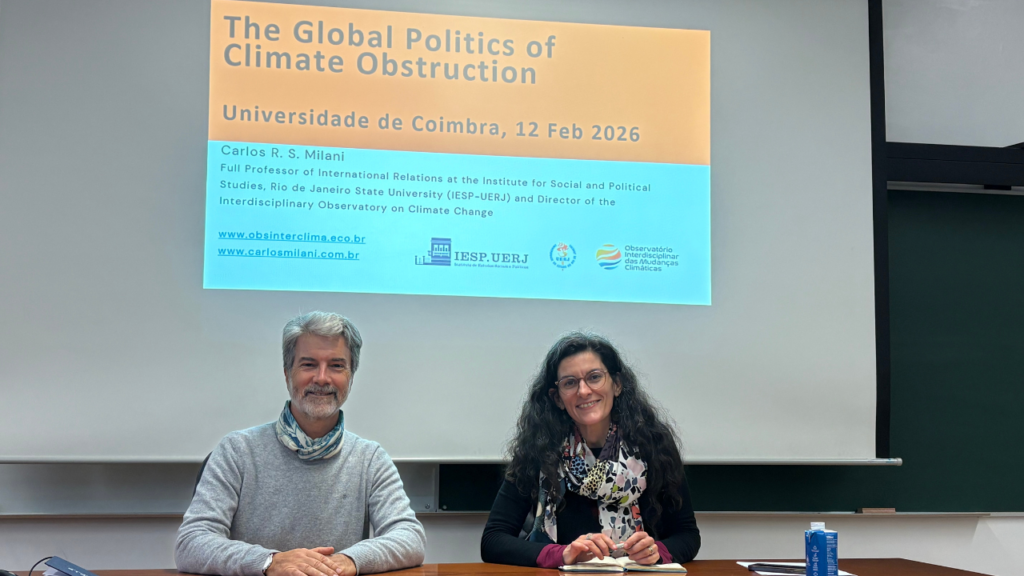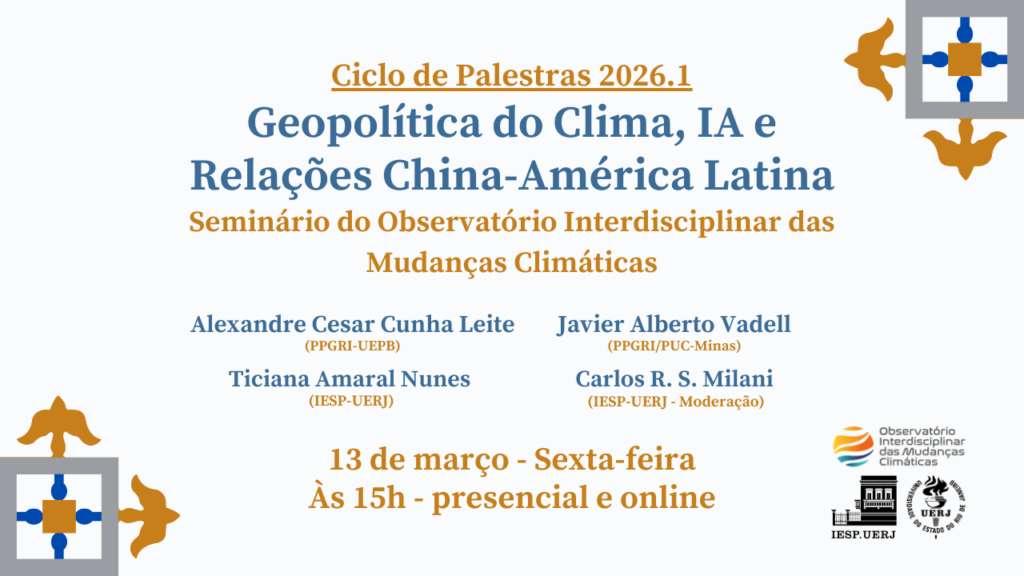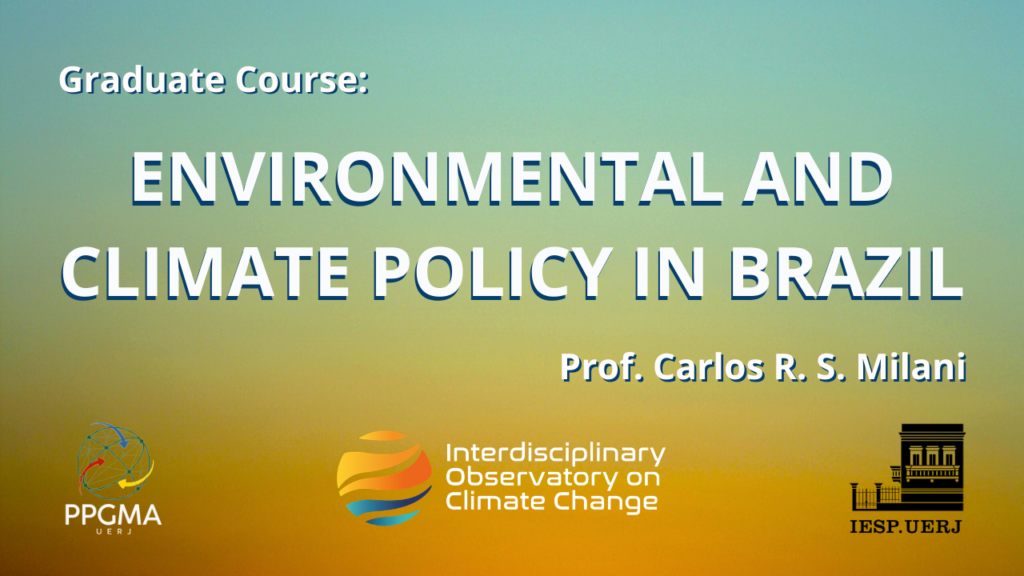Last Friday, 15 August, the Institute of Social and Political Studies (IESP-UERJ) hosted the event Foreign Policy, Feminism and Climate Emergency, a seminar organised by the Interdisciplinary Observatory on Climate Change in partnership with the Laboratory for Global Political Analysis (LABMUNDO). Dedicated to the release of the book Feminist Foreign Policy as Government Branding: Is There Congruence Between Institutional Norms and Cooperation Practices? (Appris, 2025), written by Laboratory researcher Bruna Soares de Aguiar (IRI/PUC-Rio), the seminar featured a panel composed of the author and researchers Bruna Bataglia (OIMC), Janaína B. Pinto (LABMUNDO and OIMC) and Paula Drummond (IRI/PUC-Rio).



The panel also included staff from the Observatory and LABMUNDO, who occupied seats in the Olavo Brasil Room and enriched the debate led by the speakers. Just before the discussion, the event featured an introductory presentation by professors Enara Echart Muñoz(Complutense University of Madrid) and Carlos R. S. Milani (IESP-UERJ), coordinator of OIMC and founder of LABMUNDO. After the event, a cocktail reception was held to celebrate the release.



The first book released in Brazil on Feminist Foreign Policy, this work examines how feminisms have sometimes been instrumentalised by governments as a discursive strategy, without necessarily translating into tangible changes in international practices. Based on the International Development Cooperation agenda, the book analyses the bilateral relationship between Sweden and Bolivia as a case study, investigating to what extent the labelling of foreign policy as ‘feminist’ has influenced power dynamics in the North-South relationship. As well as contributing to the debate on the limits and potential of Feminist Foreign Policy, the book proposes an innovative analytical method, aimed at researchers interested in assessing the extent to which feminist narratives have generated effectively transformative practices in international relations.




